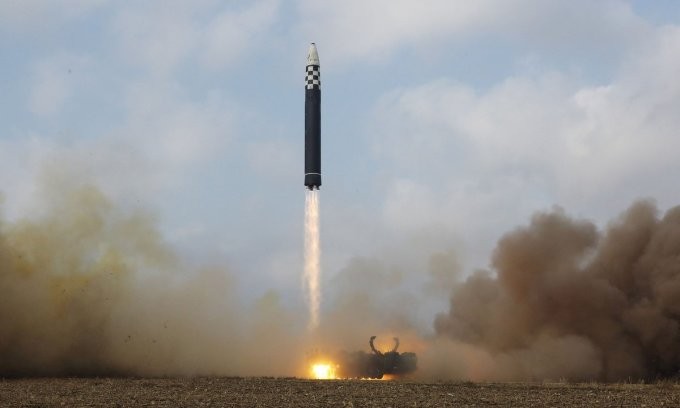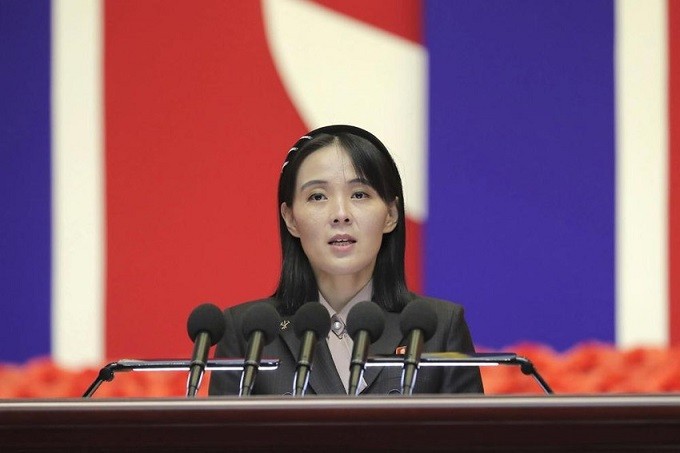(VOVWORLD) -Tensions have escalated on the Korean peninsula after North Korea fired more than 80 missiles in just four days earlier this month. The UN and world powers are urging parties to act responsibly and constructively for peace and stability in the region and the world.
 North Korea's Hwasong-17 missile leaves the launch pad during a test on November 18. Photo: KCNA North Korea's Hwasong-17 missile leaves the launch pad during a test on November 18. Photo: KCNA
|
In an official statement on Thursday, Kim Yo-jong, sister of North Korean leader Kim Jong-un, said tensions will increase if South Korea imposes sanctions against the North. Two days earlier the South's foreign ministry said it was considering independent sanctions against the North should Pyongyang conduct a nuclear test.
Mounting tensions
Between November 2 and November 5, North Korea launched more than 80 missiles of various types, including 23 missiles fired on November 3, equal to all the missiles launched by North Korea in 2017. The last test was on November 18 of an intercontinental ballistic missile (ICBM) believed to be capable of striking the US.
North Korean officials said the missile tests were in response to large-scale military exercises conducted by the United States, South Korea and Japan. "The recent corresponding military operations by the Korean People's Army are a clear answer of (North Korea) that the more persistently the enemies' provocative military moves continue, the more thoroughly and mercilessly the KPA will counter them," the General Staff of North Korea's military said in a statement carried by state media on November 7.
 Kim Yo-jong, sister of North Korean leader Kim Jong-un. Photo: KCNA Kim Yo-jong, sister of North Korean leader Kim Jong-un. Photo: KCNA |
The US-South Korea exercise called Ulchi Freedom Shield that took place at the end of August involved thousands of soldiers, warships, and aircraft. A large-scale joint defense exercise called Hoguk was conducted in the second half of October. A US-South Korea air force exercise called Vigilant Storm held earlier this month involved more than 200 aircraft.
Vigilant Storm, the largest military exercise held on the Korean peninsula in the past five years, is believed to be the main reason North Korea launched missiles on November 3, escalating tensions to the highest level since 2017 when Pyongyang conducted its sixth nuclear test.
De-escalation efforts
The UN, international organizations, and countries have repeatedly called on all parties to refrain from further actions, not let tensions escalate, and make efforts to reach a resolution. The UN Security Council has so far this year convened nine specialized meetings on North Korea. At the latest meeting on November 4, Assistant Secretary-General on political affairs Khaled Khiari urged the Council to do all it can to prevent tensions from escalating on the Korean peninsula.
Earlier, UN Secretary-General Antonio Guterres urged Pyongyang to abide by its international obligations outlined in Security Council resolutions and to take steps to resume talks towards denuclearizing the Korean peninsula.
Russia, the US, and China, though they have not yet agreed on how to resolve tensions, have repeatedly called for diplomatic efforts, political dialogue, and avoidance of any escalation for the peace and stability of Northeast Asia and the world.